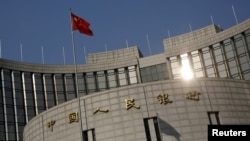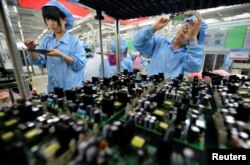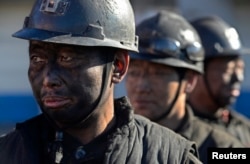China's economy grew 6.9 percent in 2015, the slowest full-year growth for the Asian economic powerhouse in 25 years. Data released Tuesday also suggest the country is shedding its image as the "world's factory," and highlight the growing importance of the service sector.
China’s auditors said the service sector has replaced manufacturing as the most important contributor to the economy. The service industry contributed more than 50 percent of the GDP in 2015, Wang Baoan, head of the National Statistics Bureau, said while releasing the annual growth report.
The manufacturing sector, which has been the bulwark for China’s “economic miracle”, fell dramatically by 2.4 percent to 7 percent in 2015 as compared to the previous year.
Service sector doing well
Chinese Premier Li Keqiang has emphasized the growth in domestic consumption and the service sector to offset the decline in manufacturing and exports. The service sector has grown significantly, emerging as a major job creator.
But analysts said the service sector, which is based on domestic consumption, cannot be relied on for long-term growth. No country can grow on the strength of consumption if its productivity is sliding, they said.
"By itself, consumption growth will not drive the long-term growth of Chinese economy," said Xu Bin, professor of economics and finance at the China Europe International Business School in Shanghai.
“Long term growth is only possible with higher productivity. It’s only in the short term that consumption growth can be useful,” Xu said.
Lowered industrial growth statistics suggested that many more factories, or departments within them, were closing across China than what has been reported publicly, analysts said.
Sectors like mining and electricity generation, which employ over 30 million people, are also experiencing a major slowdown.
Slower economic growth in many areas
Mining output slipped to a mere 2.7 percent last year from 4.5 percent in 2014. The growth in electricity consumption, a crucial aspect of industrial output, decelerated to 1.4 percent compared to 3.2 percent in 2014.
Middle-class Chinese are spending hugely on education, health and tourism, Xu said. These segments of the service industry have been supported by the high-paced growth in online shopping and online banking activities.
"E-commerce is the biggest economic driver in China today. It has emerged as the center of convergence of all kinds of services, and the biggest job creator," said Ernie Diaz, consultant with China Digital Review. "Online shopping has made it possible to get almost anything in second- and third-tier cities, and helping their growth."
China reacts to slowing of growth
Chinese President Xi Jinping tried to soften the bad news, saying the economy has entered a new stage of slower, but more resilient growth. He asked officials to make innovation the pivot of economic development besides encouraging domestic consumption and service sector growth, the official Xinhua news agency reported.
Stock indexes in Shanghai, Hong Kong surge
The year-end figures for the world's second biggest economy only just missed policymakers' target of around 7 percent full-year growth for 2015, a fact that may ease investors' concerns as Beijing struggles to move from an investment- and export-driven economy to one driven by consumer demand.
Stock indexes in Shanghai and Hong Kong surged on the news, rebuffing some investors' fears that China's growth would be even slower.
Despite China's slowing economic fortunes, Beijing's advance is still sharply higher than in Western economies.
The United States, the world's largest economy, recorded 2 percent growth in the July-to-September period last year, while Europe's 19-nation bloc that uses the euro currency advanced just three-tenths of a percent in the same quarter.













